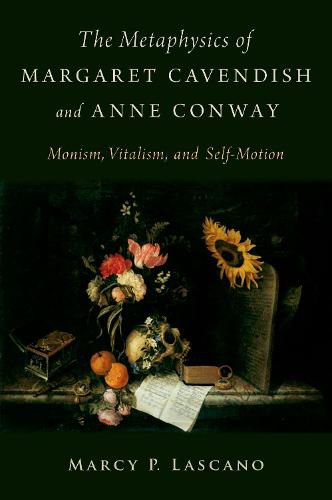Readings Newsletter
Become a Readings Member to make your shopping experience even easier.
Sign in or sign up for free!
You’re not far away from qualifying for FREE standard shipping within Australia
You’ve qualified for FREE standard shipping within Australia
The cart is loading…






Marcy P. Lascano examines the philosophical systems of Margaret Cavendish and Anne Conway. Cavendish and Conway are both known for their monism, i.e., the view that there is only one kind of substance in the world, which is capable of self-motion and life. Lascano here provides detailed analyses of their respective accounts of monism, substance, self-motion, individuation, and identity over time, as well as causation, perception, and freedom. She thereby shows how their superficially similar views provide importantly different explanations of the workings of the world. Lascano illuminates under-appreciated nuances in Cavendish's and Conway's views, highlighting the important differences between their systems. Examining their views in tandem allows readers to appreciate the originality of their ideas and their responses to seventeenth-century debates. The book's final chapter then explains how Cavendish's metaphysics lays the groundwork for her natural philosophy, while Conway's metaphysics provides the foundation for her theodicy. Drawing on their original writing and engaging with existing scholarship, Lascano presents the first sustained comparison of Cavendish's and Conway's metaphysics revealing the differences between Cavendish's thoroughgoing naturalism and Conway's spiritualism. In turn, she enlarges our view of these thinkers and their unique ways of understanding the world around us.
$9.00 standard shipping within Australia
FREE standard shipping within Australia for orders over $100.00
Express & International shipping calculated at checkout
Marcy P. Lascano examines the philosophical systems of Margaret Cavendish and Anne Conway. Cavendish and Conway are both known for their monism, i.e., the view that there is only one kind of substance in the world, which is capable of self-motion and life. Lascano here provides detailed analyses of their respective accounts of monism, substance, self-motion, individuation, and identity over time, as well as causation, perception, and freedom. She thereby shows how their superficially similar views provide importantly different explanations of the workings of the world. Lascano illuminates under-appreciated nuances in Cavendish's and Conway's views, highlighting the important differences between their systems. Examining their views in tandem allows readers to appreciate the originality of their ideas and their responses to seventeenth-century debates. The book's final chapter then explains how Cavendish's metaphysics lays the groundwork for her natural philosophy, while Conway's metaphysics provides the foundation for her theodicy. Drawing on their original writing and engaging with existing scholarship, Lascano presents the first sustained comparison of Cavendish's and Conway's metaphysics revealing the differences between Cavendish's thoroughgoing naturalism and Conway's spiritualism. In turn, she enlarges our view of these thinkers and their unique ways of understanding the world around us.